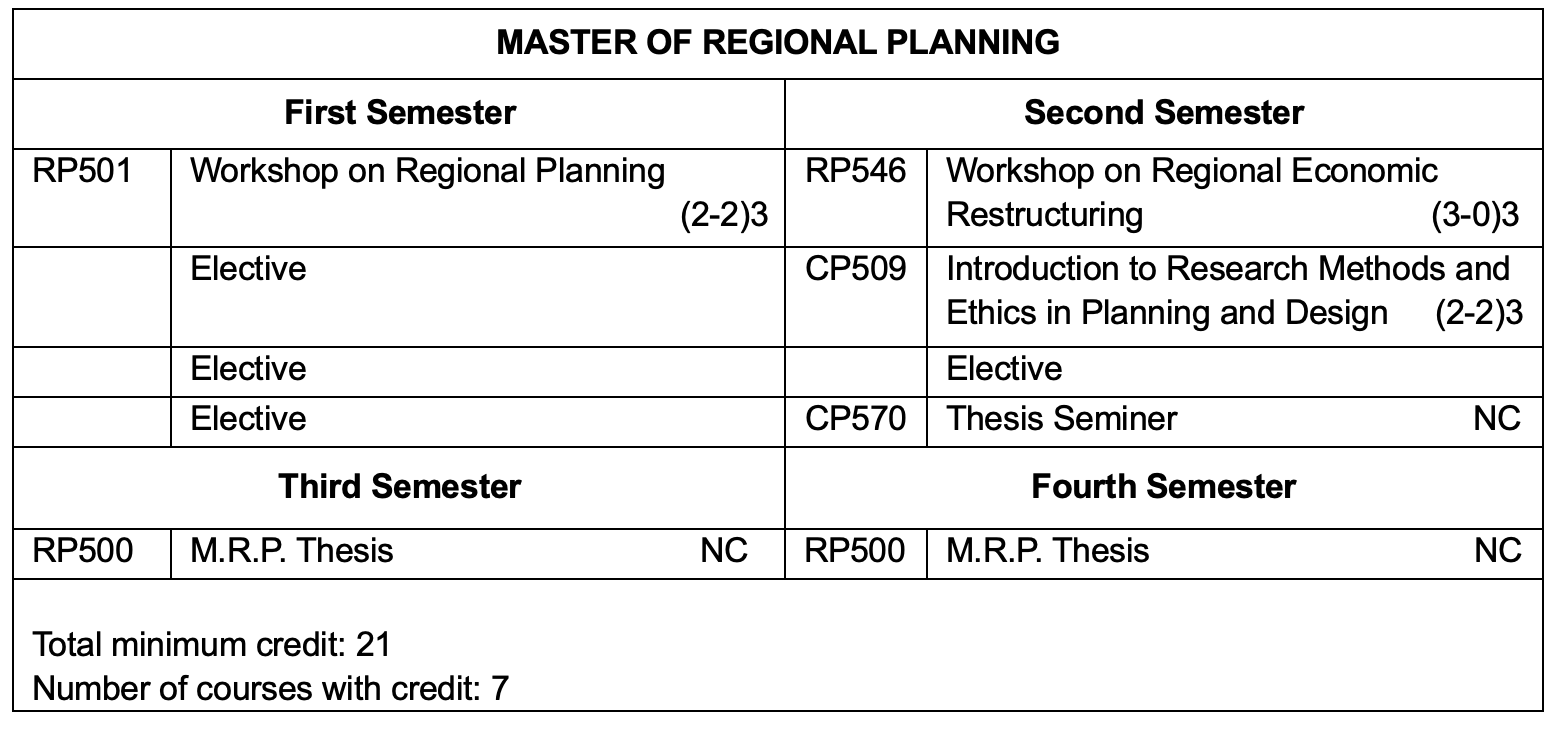Master of Regional Planning
Last Updated:
Master of Regional Planning
Overview
Established in the 1966–1967 academic year, the Master of Regional Planning (MRP) program at the Department of City and Regional Planning is the first postgraduate program in regional planning in Türkiye. Founded amidst the recognition of regional planning as a scientific discipline, the program was initially conceived to address and reduce regional inequalities. Over the decades, as global socio-economic structures have rapidly transformed, the program has continuously evolved, embracing new perspectives on spatial organization and governance.
Today, the MRP program reflects a dynamic and forward-thinking approach that acknowledges the increasingly interconnected nature of concepts such as urban, rural, metropolitan, and region. The concept of planning has expanded beyond its original meaning in the 1950s and 1960s, now encompassing principles of participation, sustainability, adaptability, and multilevel governance. In response to the complex and multidimensional challenges of today's world, the program integrates economic, social, and environmental dimensions of regional development.
The MRP program equips students with the skills and critical perspectives needed to confront challenges related to regional disparities, urban-rural linkages, and climate resilience. Its mission is to empower future planners to design and implement regional strategies that promote inclusive growth, environmental sustainability, and democratic governance. The program's vision is built around four foundational objectives:
• Establishing regional economies with sustainable growth potential,
• Promoting learning capacities that enable adaptation to global change and enhance competitiveness at multiple scales,
• Ensuring liveable and sustainable environments, and
• Supporting governance systems that empower local actors while fostering connections with broader national and global networks.
To achieve these objectives, the MRP program produces planners who are not only analysts and decision-makers but also facilitators and mediators who help diverse communities shape their development trajectories. Graduates of the program are prepared to bridge technical expertise with collaborative processes, ensuring that regions develop in ways that reflect both local needs and global opportunities.
Firmly rooted in METU's tradition of academic excellence and public service, the Master of Regional Planning program continues to play a key role in redefining regional planning practice in Türkiye and beyond.
Recent and Emerging Research Fields
• Regional Resilience and Planning for Resilience (Climate-resilient regional strategies, Post-disaster regional reconstruction, Regional risk and vulnerability assessments)
• Sustainable Regional Economies (Green economy strategies at regional scales, Circular economy applications, Regional renewable energy planning)
• Spatial Justice and Inclusive Planning (Regional disparities and poverty, Migration and demographic change, Spatial justice, gender, and minority inclusion in planning)
• Smart Regions and Digital Transformation (Smart mobility networks, Regional digital infrastructure, Big Data and GIS in spatial analysis)
• Urban-Rural Linkages and New Regional Geographies (Peri-urban development strategies, Food systems planning and rural resilience, Rural innovation ecosystems)
• Multi-Level Governance and Regional Policy Innovation (Regional leadership and strategic alliances, Cross-border and transnational regional planning, EU Cohesion Policy/ OECD Territorial Reviews)
• Climate Adaptation and Regional Environmental Planning (Coastal planning, Nature-based solutions in regional development)
• Mega-City Regions and Metropolitan Regionalism (Inter-metropolitan transportation, Regional housing and labor market integration, Polycentric spatial systems)
Curriculum

Courses in Regional Planning Master Program
RP 501 Regional Planning Studio I
(2-2)3
This Regional Planning Studio is designed for graduate students interested in understanding regional planning, development and analysis. The course provides a theoretical and practical framework to address challenges in regional planning, including territorial development, land use and preservation, transportation networks, economic development, and environmental sustainability. It emphasizes the dynamics of centralization, decentralization, and recentralization processes in urban and regional contexts, along with the polycentric aspects of regions. Throughout the course, students will explore the history, institutional practices, limitations and current challenges of regional planning. There will also be a strong focus on governance issues related to regional planning. Participants will engage in class activities, case studies, and group discussions to develop strategic solutions that balance growth with sustainability in diverse regional contexts.
RP 546 Workshop on Regional Economic Restructuring
(3-0)3
This workshop is designed for graduate students to critically examine theories and case studies related to deindustrialization, innovation-driven economies, service-sector shifts, regional disparities, and post-growth strategies. It explores the spatial implications of economic transformations, focusing on changes in labor markets, investment flows, and territorial cohesion. Throughout the course, students will analyze institutional frameworks and governance structures that facilitate economic restructuring at various scales. To foster the development of inclusive and sustainable regional development strategies, students will emphasize equity, resilience, and long-term competitiveness. The course will engage participants in classroom activities, case study analyses, and collaborative group discussions to enhance practical understanding and problem-solving capabilities.
CP 509 Introduction to Research Methods and Ethics in Planning and Design
(2-2)3
This course prepares students to conduct original research on topics related to planning and design. It introduces them to the research process design and different qualitative, quantitative and mixed-method research approaches used by planners and designers. It addresses the selection, development, application, and analysis of various types of methodological instruments and procedures for conducting research about the physical environment. It also introduces students to ethical issues in research.
